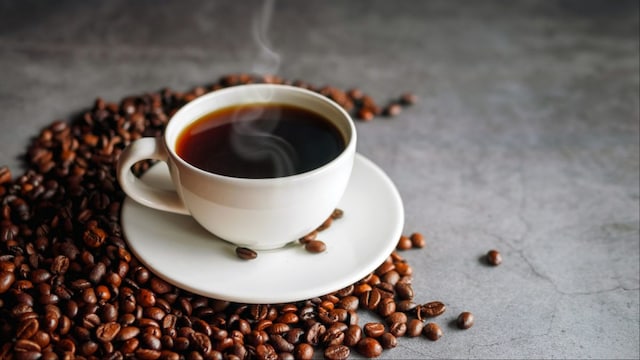Source :NEWS18 NEWS
Last Updated:April 22, 2025, 23:55 IST
Caffeine doesn’t cause IBS but can worsen its symptoms, making mindful consumption crucial for those affected.
While caffeine boosts energy and alertness, it can also trigger or worsen IBS symptoms, especially in sensitive individuals.
IBS is a prevalent gastrointestinal condition characterized by symptoms such as abdominal pain, bloating, gas, and altered bowel habits like constipation or diarrhea. Lifestyle, stress, and diet also contribute to the development and exacerbation of such conditions. Caffeine is thought to affect IBS, particularly when consumed through tea or coffee. Dr. Bhavesh Patel, Consultant Gastroenterologist at Bhailal Amin General Hospital, Vadodara, Gujarat, shares all you need to know:
Caffeine is a naturally occurring stimulant found in tea and coffee, recognized for its action on the nervous system. It enhances alertness and energy levels, making it a common part of daily routines. Caffeine also stimulates the gastrointestinal tract, promoting increased gut motility and resulting in quicker bowel movements. For people suffering from IBS, particularly diarrhea-predominant IBS, this can be problematic.
related stories
Clinical observations and some studies indicate that excessive caffeine consumption is associated with increased IBS symptoms. Coffee, in particular, is known as a gastrointestinal irritant. It can stimulate gastric acid secretion and act as a bowel stimulant, potentially causing cramps, urgency, and additional restroom visits.
Tea tends to be slightly gentler on the stomach because it is less irritating, but it is not completely without concerns. Both black and green teas contain caffeine, though in lower amounts compared to coffee. Herbal teas are often caffeine-free but may still contain compounds that influence digestion. For instance, peppermint tea can relax the gut muscles and help alleviate symptoms, while other herbal teas may reduce inflammation.
Sensitivity to caffeine among people with IBS varies greatly. Some individuals may tolerate one or even two cups of coffee or tea without issue, while others may experience symptoms even with small amounts. Reactions can also be influenced by stress and other dietary factors. It’s also worth noting that tea and coffee are often consumed with milk and sugar, both of which can be IBS triggers.
Caffeine is not a cause of IBS, but it can exacerbate symptoms in those already diagnosed with the condition. Reducing intake, switching to decaffeinated options, or monitoring symptoms after caffeine consumption may offer useful clues for managing the problem.
SOURCE : NEWS 18








